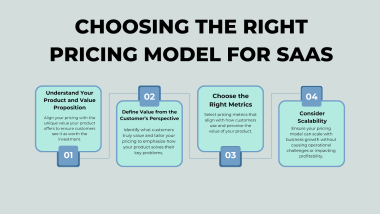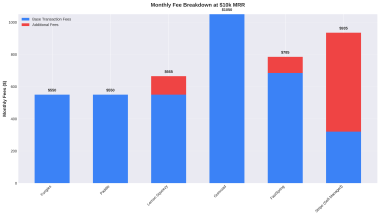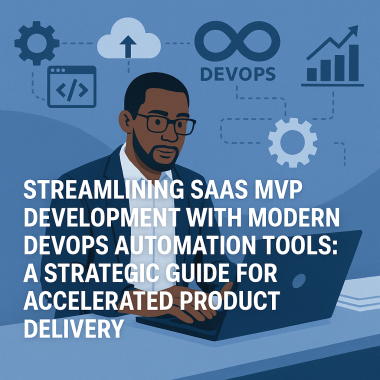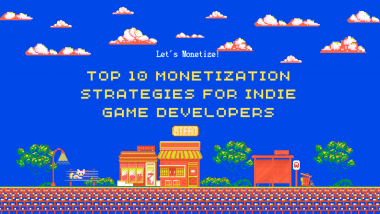Setting the Stage: Why Diversify Beyond Steam?
Steam has long been the gold standard for game devs and players. But guess what? It’s easy to get lost in the crowd. If you decide to sell game codes across different platforms, you gain more control—over your brand, your cash flow, and how you interact with your audience. So, why not explore beyond the Steam universe, right? Stick around; we’ve got a ton of info to unpack.
What to Look for When Choosing a Platform to Sell Game Codes
When you decide to go outside Steam, there is a lot to keep track of. It’s not just about finding a place to sell keys online. Consider the platform’s user base, revenue share, and discovery features. You also want a platform that aligns with your game’s genre and audience.
The Big Players: Major Platforms to Sell Digital Game Codes
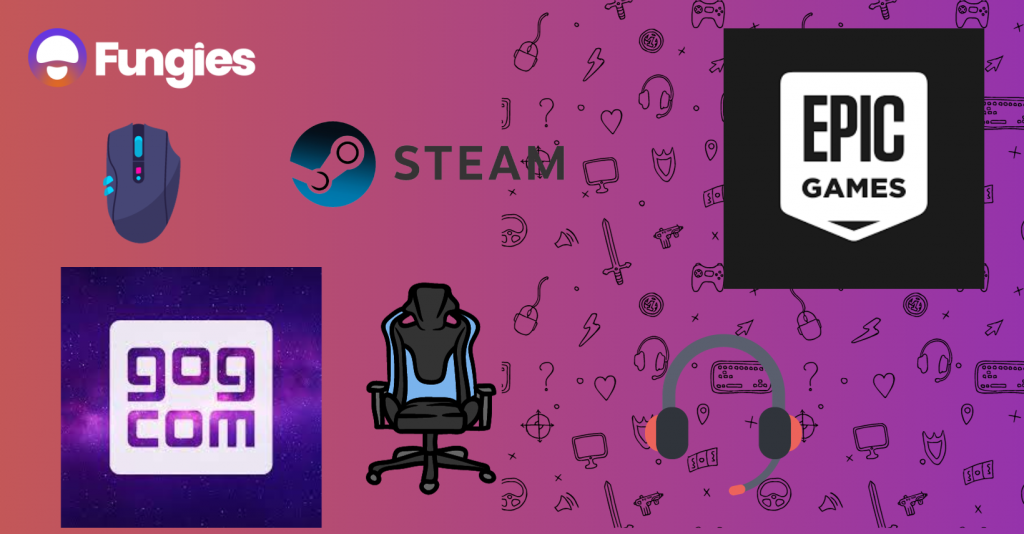
Let’s start with a rundown of some of the big players where you can sell game codes. Each has its own pros and cons, so the best platform for you will depend on various factors like your game’s genre, your revenue goals, and your target audience.
A Look at Steam: The Benchmark in Digital Distribution

When you think about where to sell digital game codes, Steam is usually the first name that pops up. It’s the granddaddy of the platforms, having been around since 2003. With such a long history, it’s gained wide trust and built an enormous user base, making it a default option for many game developers. However, they do take a significant chunk of your earnings, typically around 30%. That’s a substantial cut, especially for smaller studios that are just getting off the ground.
Epic Games Store: The Challenger

Next in line is the Epic Games Store. This platform has quickly risen as a significant competitor to Steam, largely thanks to a more developer-friendly revenue share model of 88/12. Epic Games Store may not boast a user base as extensive as Steam’s, but it’s a platform on the rise. It’s gained a lot of popularity among Fortnite fans and is continually striking deals for exclusive game releases.
GOG.com: The DRM-Free Haven

Good Old Games, commonly known as GOG.com, has carved out a unique space in the digital distribution landscape by offering DRM-free games. What’s DRM? It stands for Digital Rights Management, and it’s a technology that restricts how consumers can use digital products. Going DRM-free appeals to a certain crowd that values the freedom to use their purchased games however they like.
EA: Specializing in AAA Titles

Last but certainly not least, we have Electronic Arts’ platform. Unlike the other platforms, EA is not a catch-all distribution point for all types of games. Instead, it specializes in big-budget, AAA titles. These are the blockbuster games with high-quality graphics, intricate storylines, and extensive gameplay. If you’ve developed a game that falls into this category, EA could be an excellent fit. However, if you’re a smaller developer with a more indie-focused title, you might find it a bit challenging to grab attention on this platform.
Steam vs. Epic vs. GOG vs. EA: Breaking It Down
Each platform has its unique pros and cons when it comes to user base, revenue share, and discovery features. Armed with this information, you can make a more informed decision on the best place to sell your game codes.
User Base: Where Are Your Players?

When it comes to the user base, each platform caters to a somewhat different crowd.
Steam
Steam is like the bustling metropolis of digital game stores, with a user base so large it spans across numerous genres and styles.
Epic Games Store
Epic Games Store attracts a younger demographic, partly because of its association with Fortnite.
GOG
GOG, on the other hand, has an audience that values DRM-free gaming, which tends to attract a more seasoned crowd of gamers.
EA
EA’s user base is pretty specific; they’re fans of big-ticket EA games like “FIFA” and “Battlefield.”
Revenue Share: Who Takes the Smallest Cut?
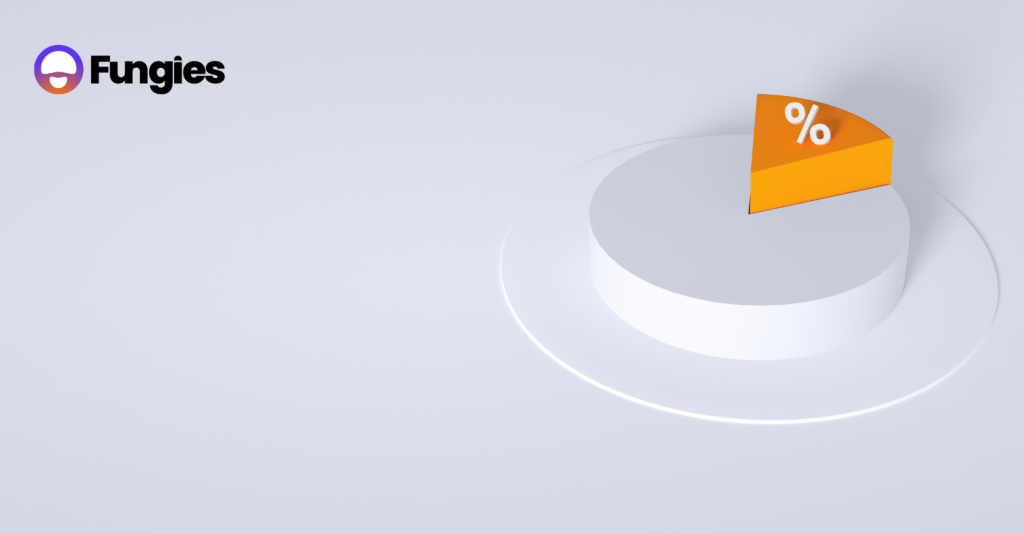
Money talks, right? So, revenue share is a critical aspect of an informed decision.
Steam
Steam takes a heftier slice of the pie with a 30% cut. Now, that could be offset by higher sales volumes due to its massive user base, but it’s still something to consider seriously.
Epic Game Store
When it comes to keeping more of your hard-earned cash, Epic Games Store is the leader of the pack with their 88/12 revenue share model. You get to pocket 88% of the revenue, which is a breath of fresh air, especially if you’re a smaller developer with tight margins.
Discovery Features: Getting Your Game Noticed

You’ve worked hard on your game, and you want people to find it. Each platform has its own set of features aimed at making your game discoverable to the masses. Knowing the ins and outs of these discovery features can significantly influence your choice of platform, especially if you’re trying to break through the noise and get noticed.
Steam
Steam uses a variety of algorithmic techniques like “Discovery Queues,” where it recommends games based on a user’s past behavior.
Epic Games Store
Epic Games Store uses more of an event-driven approach, featuring exclusive game drops and special sales to highlight new or interesting titles.
GOG AND EA
GOG and EA are somewhat more traditional, leaning on categories and user ratings to guide gamers to products they might enjoy.
Indie Galore: Platforms for Independent Developers
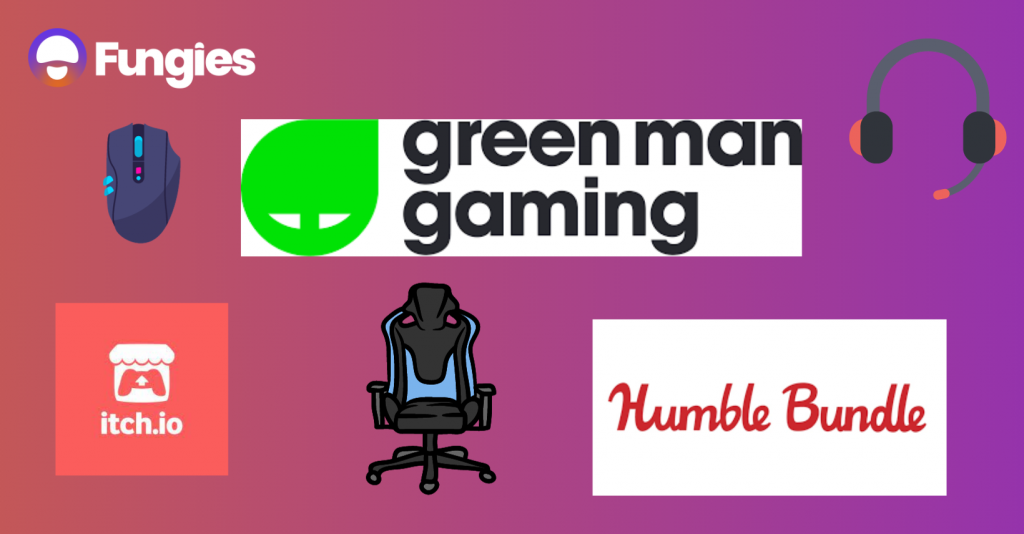
If you’re an independent developer, there are platforms specifically tailored to your needs. Whether you’re after a more flexible revenue share, unique pricing models, or flash sales to boost visibility, there’s likely a platform that aligns with your goals.
itch.io: The Indie Darling

If you’re an indie developer looking for a platform that “gets you,” itch.io is pretty much your dream destination. Not only does it provide an open marketplace specifically designed for indie games, but it also gives you the freedom to set your own revenue share. Yep, you heard that right. If you want to test out different revenue splits to see what maximizes your profits, itch.io gives you that flexibility. Moreover, the platform fosters a sense of community by providing features like forums and direct messaging, connecting you directly with your audience.
Humble Bundle: Pay What You Want

Humble Bundle flips the traditional pricing model on its head by allowing buyers to set their price for a bundle of games. This unique approach can serve as a fantastic way for lesser-known developers to get their games out there. When your game is included in a bundle, it can be exposed to a large, eager audience who may have never heard of you before. While you might take a small hit on the initial sale, the brand recognition and potential for future sales can be invaluable.
Green Man Gaming: Flash Sales and More

Green Man Gaming is another alternative, known for its flash sales and loyalty programs. The platform regularly features games at reduced prices for a limited time, which can give your game a visibility boost. While their user base isn’t as broad as some other platforms, what they lack in size, they make up for in engagement. Their loyalty program can keep players coming back, increasing the chances that they’ll stumble upon your game.
Indie Platforms: What Sets Them Apart?
If you’re looking to build a strong community and have the freedom to set your pricing terms, indie-focused platforms offer features that cater precisely to these needs. So, take a closer look and see which platform aligns best with your game and business goals.
Community Engagement: Fostering a Loyal Fanbase

When it comes to indie game platforms, community engagement is a big deal. This isn’t just a nice-to-have feature; it’s a game-changer. By allowing you to directly engage with your audience, you can gain real-time feedback, understand what players love (or don’t love) about your game, and even build anticipation for future updates or releases. In essence, platforms with robust community features can serve as fertile ground for growing a dedicated fanbase around your game.
Pricing Flexibility: Your Game, Your Rules

One size doesn’t fit all, especially when it comes to pricing your indie game. That’s why platforms like Humble Bundle and itch.io give you a ton of room to experiment. Whether you want to try a “pay what you want” pricing model or offer custom bundles that package your game with other products, you’re in control. This level of flexibility allows you to test different strategies and find what resonates most with your audience.
Direct to Player: Building Your Own Storefront
If you’re excited about carving your own path in the gaming industry, going direct-to-player with your own storefront is worth serious consideration.
Why Consider Your Own Store?
Unlike other platforms where you have to adhere to established guidelines and revenue splits, running your own store puts you in the driver’s seat. You call the shots on everything from user experience to the kinds of promotions you run. Perhaps most enticing of all, the revenue is all yours to keep, barring any operational costs. This means you can reinvest more into what matters most, like developing your game further or scaling your operations.
No-Code Storefront Solutions: Easy Setup for Everyone
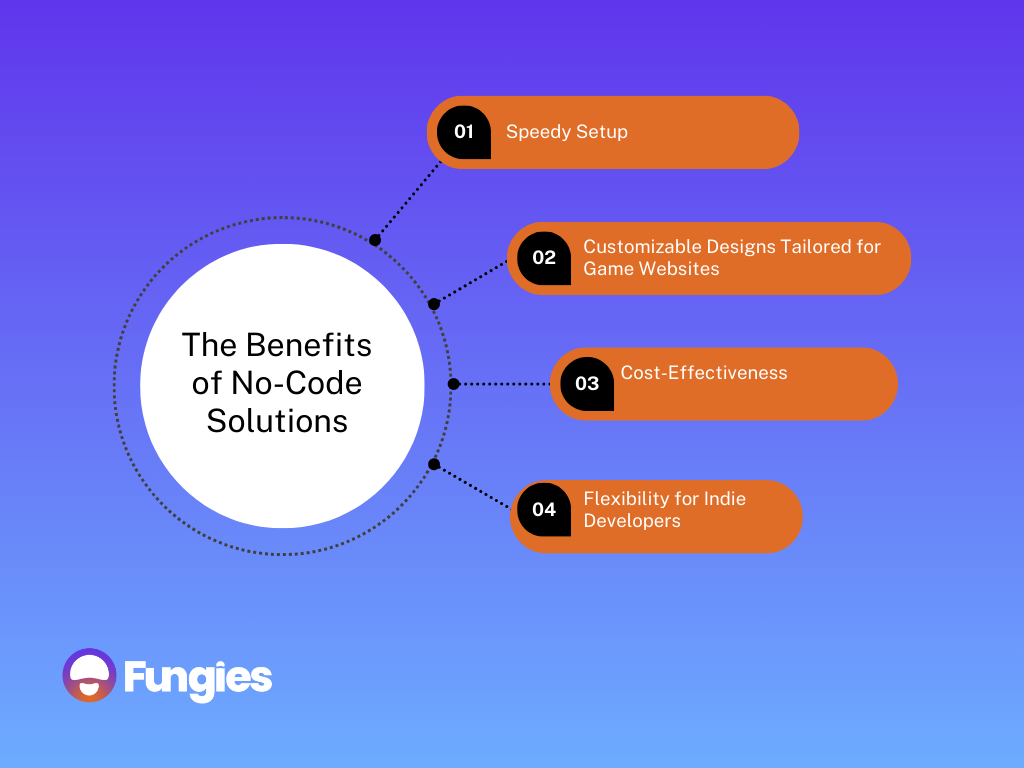
Setting-up a fully functional game storefront is no longer an option available only for tech magicians. There are numerous no-code and low-code solutions available that make it a breeze to set up a professional-looking storefront. These platforms come with easy drag-and-drop interfaces and pre-built templates, so you can go from zero to launch without ever touching a line of code. Plus, many of these solutions offer built-in analytics and marketing tools, further simplifying the job of running a successful online store.
The Future of Game Code Sales: Trends and Strategies to Watch
The gaming industry is undoubtedly one of constant change, driven by technology and player expectations. By keeping an eye on these trends, you’ll be better equipped to adapt your sales and marketing strategies, ensuring your game continues to thrive in this dynamic market. It’s an exciting time to be involved in game development, and staying informed is the first step toward seizing new opportunities.
Embracing Subscription Models: Consistent Revenue Streams
One of the most talked-about trends in the gaming industry right now is the rise of subscription models. Platforms like Xbox Game Pass and PlayStation Now are demonstrating that players are willing to pay a monthly fee for access to a library of games. For game developers, this can be a double-edged sword. On one hand, it offers the possibility of a consistent and recurring revenue stream. On the other hand, it does raise questions about how individual game sales could be impacted. Either way, it’s essential to understand how your game fits into this emerging landscape and whether a subscription-based approach could be beneficial for you.
The Advent of Cloud Gaming: Accessibility and New Audiences

Another exciting trend on the horizon is cloud gaming. Services like Google Stadia and NVIDIA GeForce NOW are making it possible for players to stream games directly to their devices, eliminating the need for powerful hardware. This technology could significantly expand your game’s potential audience, making it accessible to players who might not have the latest gaming PC or console. However, this also means that you’ll need to think about how your game performs in a cloud-based environment, including factors like latency and server load.
Interactive Live Streaming: Engaging Players in Real-Time
Platforms like Twitch and YouTube Gaming have been hugely influential in how games are discovered and enjoyed. Increasingly, these platforms are allowing for more interactive experiences between streamers and viewers, including the ability to influence gameplay in real-time. Incorporating elements that make your game more “streamable” can be a way to boost visibility and engage with a broader community of players.
Diversification of Monetization: In-Game Purchases, Ads, and More
In addition to traditional game code sales, many developers are exploring diverse monetization strategies like in-game purchases, advertisements, and sponsored content. While these approaches won’t be a fit for every game, they offer additional revenue streams that can complement your primary sales.
Empowering Your Decisions in Game Sales
So here we are, at the end of this comprehensive guide. The main takeaway? You have options, plenty of them. Whether you decide to go big with platforms like Steam or Epic Games Store, target niche audiences via GOG or EA, or even take the reins by setting up your own storefront, the decision ultimately rests in your hands. Your choice will shape not just your revenue, but also your relationship with your players, your brand’s image, and the future of your game.
The Value of Flexibility: Keeping Your Options Open
Remember that your initial choice of platform doesn’t have to be your final one. The gaming industry is ever-evolving, and being flexible with your sales strategy can help you adapt and thrive. For instance, starting on one platform and expanding to others as your game gains traction is a viable strategy.
By now, you should have a much clearer idea of the paths available to you for selling your game. Whichever route you choose, we hope this guide serves as a valuable resource for making those critical decisions. Feel free to refer back to it as you navigate the exciting but complex landscape of digital game sales.
Final Checklist: Quick Recap on How to Sell Game Codes Effectively
- Choose the right platform(s) based on your needs.
- Understand the revenue shares and terms of service.
- Utilize the platform’s discovery features.
- Consider going direct-to-player for more control.
